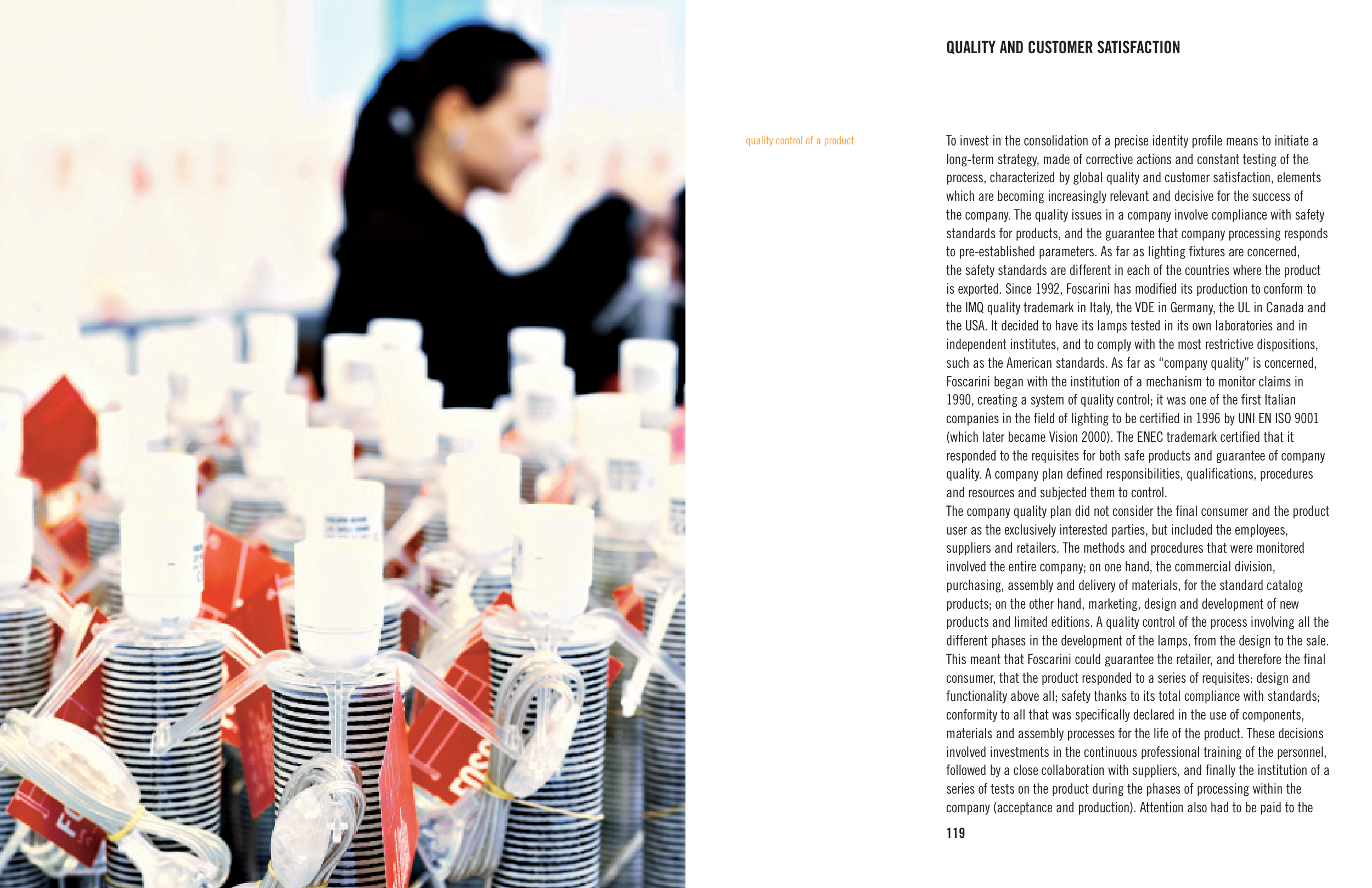119
QUALITY AND CUSTOMER SATISFACTION
To invest in the consolidation of a precise identity profile means to initiate a
long-term strategy, made of corrective actions and constant testing of the
process, characterized by global quality and customer satisfaction, elements
which are becoming increasingly relevant and decisive for the success of
the company. The quality issues in a company involve compliance with safety
standards for products, and the guarantee that company processing responds
to pre-established parameters. As far as lighting fixtures are concerned,
the safety standards are different in each of the countries where the product
is exported. Since 1992, Foscarini has modified its production to conform to
the IMQ quality trademark in Italy, the VDE in Germany, the UL in Canada and
the USA. It decided to have its lamps tested in its own laboratories and in
independent institutes, and to comply with the most restrictive dispositions,
such as the American standards. As far as “company quality” is concerned,
Foscarini began with the institution of a mechanism to monitor claims in
1990, creating a system of quality control; it was one of the first Italian
companies in the field of lighting to be certified in 1996 by UNI EN ISO 9001
(which later became Vision 2000). The ENEC trademark certified that it
responded to the requisites for both safe products and guarantee of company
quality. A company plan defined responsibilities, qualifications, procedures
and resources and subjected them to control.
The company quality plan did not consider the final consumer and the product
user as the exclusively interested parties, but included the employees,
suppliers and retailers. The methods and procedures that were monitored
involved the entire company; on one hand, the commercial division,
purchasing, assembly and delivery of materials, for the standard catalog
products; on the other hand, marketing, design and development of new
products and limited editions. A quality control of the process involving all the
different phases in the development of the lamps, from the design to the sale.
This meant that Foscarini could guarantee the retailer, and therefore the final
consumer, that the product responded to a series of requisites: design and
functionality above all; safety thanks to its total compliance with standards;
conformity to all that was specifically declared in the use of components,
materials and assembly processes for the life of the product. These decisions
involved investments in the continuous professional training of the personnel,
followed by a close collaboration with suppliers, and finally the institution of a
series of tests on the product during the phases of processing within the
company (acceptance and production). Attention also had to be paid to the
quality control of a product


